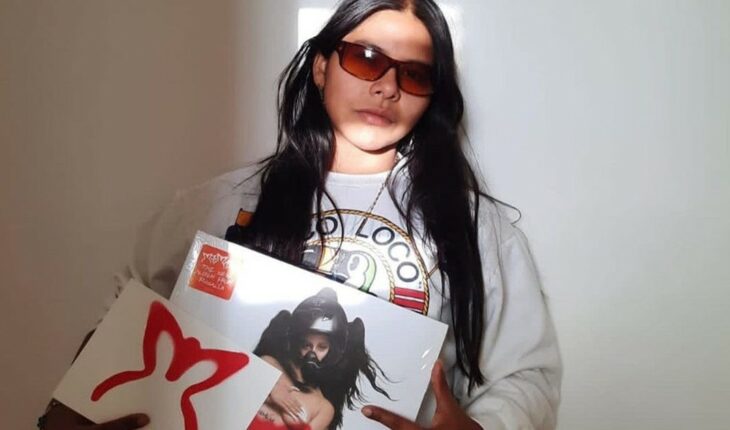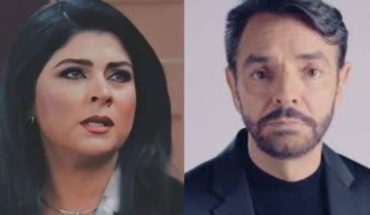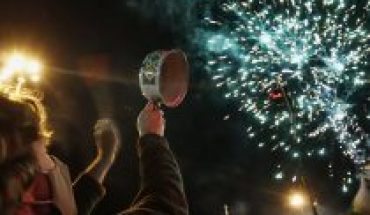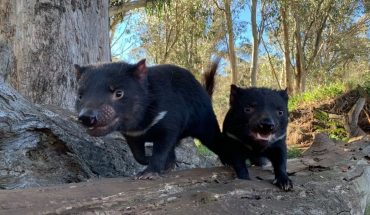“Music was always ultra present for me, I think that’s why I have a lot of attention to that,” Melody “Tayhana” Chaile tells us, in a Zoom video call, as she prepares for her next tour. What began as a curiosity today is a way of life: at 33 years old, from Mexico she makes her way as a producer and beatmaker and takes Latin America to the top of the music scene. Born in Caleta Olivia, Santa Cruz, her first contact with music was family. Influenced by his grandfather, bandoneonist César Chaile, listening to and rehearsing songs was his daily ritual. For that reason they decided to enroll her in piano lessons at age 6. “It helped me a lot, I learned a lot of things,” he recalls. She grew up in the Mar del Plata neighborhood and graduated from the National University of Southern Patagonia (UNPA) as a technician in Organization Management. Years later he traveled to Buenos Aires, where he studied film at the National School of Experimentation and Filmmaking (ENERC). Meanwhile, his search for new sounds remained intact.
“Since school I spent it in the cybers, looking for new CDs, I exchanged others, for me it was an addiction to know new things, on the radio too… I was always collecting, very curious. I always dedicated myself to partying, and when I finished studying film I started a little bit to get into the production part, to encourage us to do something every weekend. Then I had to play music, because there was no one to do it,” he tells this media. Those first steps as a producer and DJ led her to be one of the co-creators of Hiedrah Club de Baile, an artistic collective that holds Latin and dissident electronic parties, which defines itself as a defense and promotion of socio-cultural manifestations of identity minorities. That right to dance without ties and stereotypes is felt to this day in each of the artist’s presentations.
“I am no longer part of it, but at the time I enjoyed it a lot, it helped me to understand a lot of things, how the night was handled from the underground. Also the importance of having a political position, of not being naïve and thinking that certain things do not affect you… I still have it the same, but today I feel more in a different position to keep all those things to myself, I do have political decisions all the time but without exposing them,” he reflects. Months later he traveled to Mexico to continue his career there, where he began working with the record label NAAFI, which also includes Kali Mutsa & Imaabs, Espectro Caudillo, Wasted Fates and more. In 2019 he presented “Tierra del fuego”, his first album, where he combines the constant search for rhythms and performances.
To build his sets he refers to electronic music of the 90’s in Latin America, to the Latin hardhouse of Los Angeles, but mainly he is inspired by what he knows in the streets. “These are things I buy at fairs. Every time I travel I really like to go around, buy, listen, mainly what is not so mainstream. Sampling one of the CDs, processing it and giving it another meaning I made Rosalía’s beat,” he reveals. “I want to see the butterflies loose,” Rosalía sings in “CUUUUuuuuuute”, one of the most powerful hits of “Motomami”. The album became one of the most listened to of the year worldwide, and the Argentine Tayhana was the only female producer with the Spanish singer herself. “The label put me in touch, they were talking to them on Instagram and in one of the conversations she asked if she could hear demos, percussion, it was a little over a year ago. There we started sending things, I sat down to export all the beats I had, and I put it in a folder and sent them,” he recalled of the first contact.
Then she continued: “It was a super fast connection, she called me on the phone, she made a lot of appreciations of what she had heard in my music, what she had liked, and we started working a little bit on things, trying to do something else, and we worked on the beat that she already had put together, which resulted in the song. He is a very calm person, warm, good vibes, he gave me a lot of confidence to do more things. I felt great to be part of an ultra popular and mainstream album, and I love the song, I really like playing it live on my sets.” According to her, the Spanish singer herself accompanied her in the production and in the process of creating the song. In fact, the idea of adding the piano was hers, an intervention that contrasts with the intensity of the track. “In this album I have produced more than ever,” said the singer to the music popularizer and youtuber Jaime Altozano.
“I had heard things from her but I was not a fan, and when I started to meet her I said wow, how smart this woman is, coHe can propose new things and make them mainstream, he is someone who knows what he wants and who knows how to look for new things. I loved the album, I wish I could listen to it again, now that I’m going to be on a trip I want to listen to it carefully. The ballads seem beautiful to me, the reggaetones minimalist,” Tayhana reveals.
For Rosalía, “Motomami” is a tribute to her grandmother, her mother, the fanaticism inherited by motorcycles, but it is also the union of strength and fragility, she told El País. It is much more than a simple title: in times where feminism is installed in the social agenda, it summarizes the empowered women who fight but who are not perfect either, and who are full of insecurities. It is the experimentation and boiling that is also reflected in his songs, the freedom of butterflies, an identity that is in permanent construction.” I always felt very comfortable, from the side of knowing that she is a woman and knows what it is like to work in a recording studio where most are men. The album seems ultra motomami to me, because it has a lot of strength and comes to question that. The music industry is quite macho, and she put herself very much on the side of protecting my work, of mentioning me in interviews, giving me credit, with personal respect and affection,” says Tayhana.***Tayhana is a fan of those songs that play in stadiums, that are played at sporting events. Quote “Let’s Get Loud” by Jennifer Lopez or Ricky Martin. As he told Infobae, it is one of his dreams, to get to produce his songs, as well as those of M.I.A or Shakira. “I like Cazzu very much, I really like his voice, the things he does, his performance on stage, it catches my attention. I also like La Joaqui very much. I would also love to do something with the Culisueltas, with this revival of cumbia turra I would love to,” he confesses to Filo.
He is currently celebrating the fact that there are more and more producers in Latin America. During the last years he played in festivals such as Lollapallooza (ARG), Mutek (USA), Unsound (POL), Festival Estereo Picnic (CO), Festival Ceremónia (MX), SXSW (TX) and MoMA PS1 (NY-USA) among others. He participated in the Marvin Gateway Festival, prepares a tour of Europe and Canada and will be part of the next edition of the Primavera Sound festival in Brazil and Argentina: “It will be a minimum of three months of preparation, I will work very calmly,” he says. The truth is that it is the beginning of a path that continues to climb from Caleta Olivia to the world. She sums it up in one sentence: “I always came back to Argentina on vacations or festivals. It’s nice to be paid a ticket to go back to your own country to play.”





